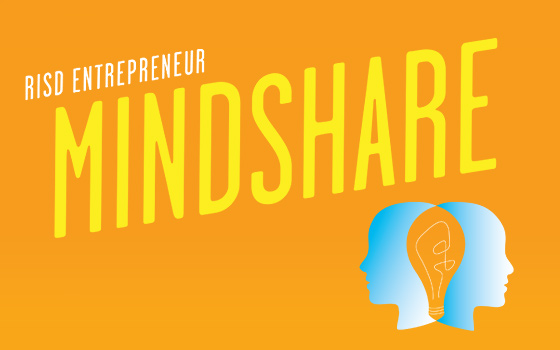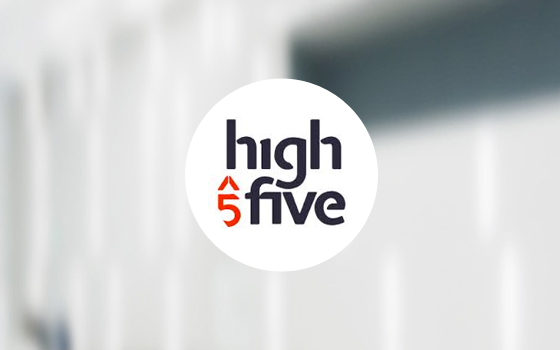It’s been a few months since my last book-recommendations post, and in that time I’ve read a few I wanted to share. I hope there’s one among them that piques your interest…
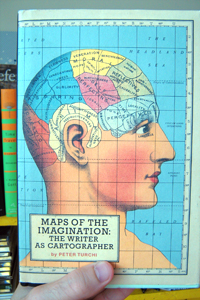
Maps of the Imagination: The Writer as Cartographer by Peter Turchi
I began reading this book back in February, and even quoted from its very first page in a blog post on mapping your professional network and then later in a post on the mad scientist blogger. I can’t remember how I came across this book—my guess is that it was mentioned in a blog post somewhere.
Ultimately, this is a long, deep reflection upon a single metaphor—writing as mapping. Turchi’s writing creates an experience that is a lot like sitting and listening to your favorite professor ruminate on life, words, history, the world, and connect it all somehow, in his own way.
My initial thought was that reading this book would help me to improve my writing. I’m not sure that it did so in any mechanical sense; Turchi has certainly inspired me to expand the scope of my material and challenged me to find ways to include a greater level of diversity in imagery and language than I have ever before. As an example, I just opened the book to pages 62 and 63 of a chapter titled, A Wide Landscape of Snows, which include references to Sherlock Holmes, baseball, Lolita, Michael Ondaatje, Brenda Hillman, D.J. Waldie, the Roman Forum, and the Elgin Marbles. All of that in two pages!
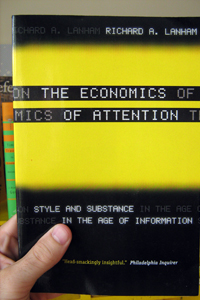
The Economics of Attention: Style and Substance in the Age of Information, by Richard A. Lanham
I had added this book to my “to read” list sometime last summer and finally got around to reading this winter. I must say that it was a difficult one to get through—the essays are challengingly dense and require a kind of attention that I suspect Lanham knows is difficult to focus today. Though written in 2006, I found many of Lanham’s insights to be fairly prescient and even more pointed in 2010 than I think they would have been had I read it earlier. It’s not as if the trends toward information overload were exactly obscure four years ago, but it seems as if it hasn’t been until the last year that the rumblings of discontent have made their way back to even those who were previously enthusiastic about this new infotopia.
What’s most interesting to me is that though Lanham’s essays fit in with the current trend of questioning digital literacy, he goes beyond the general question of volume and pursues some more particular lines of thought, such as the quality of the content itself, how criticism will adapt to new forms and make sense of what quality means, what literary education will look like through the filter of new technologies, and, of course, the future of the book.
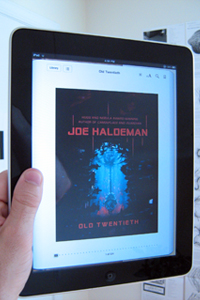
Old Twentieth, by Joe Haldeman
This novel was the first book I purchased for the iPad, and the first work of fiction I read on it. I became so engrossed in this story, which follows a virtual reality expert in charge of managing a simulation facility aboard a starship, that I read the entire book over the course of one weekend. So far, by the way, I’ve found that I read fiction faster on the iPad than I do in print, but not so for non-fiction. With non-fiction, I find that there’s something about the book itself—the cover, the paper, the page layout, the imagery—that creates a mood around the subject matter and helps me to focus my attention on it. Anyway, back to the story…
Our expert, Jake Brewer, lives in a post-apocalyptic society that has achieved medical immortality and recovered enough from its last major conflict to organize an exploratory mission to discover another “Earth.” Though considerably removed from it, Jake and his contemporaries seem to be fixated upon the twentieth century, and repeatedly use the simulation facility—kind of their version of the holodeck—to visit it, particularly in times when death was central to the experience of the living. What fascinated me was how their “time machine” became a mirror in which these characters ultimately saw their true selves—struggling to find meaning in a new kind of existence, just as afraid of death as they were when aging hadn’t been conquered, and naively unaware of the mounting threat of artificial intelligence.
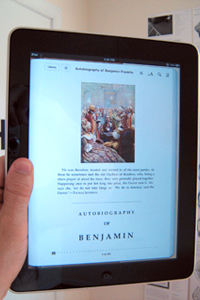
The Autobiography of Benjamin Franklin, by Benjamin Franklin
Franklin is, by far, one of the more fascinating characters in American history. Thanks to his own words, we have a thorough examination of him—from youth to old age, warts and all. I appreciate his candor. He even mentions early in the book that though it is not only possible, but likely, to indulge in self-aggrandizement when documenting one’s life retrospectively, he would try his best not to. From there, as far as I can tell, he makes good on that promise. He includes many anecdotes that are less than heroic, and though his words seem indicative of a pretty large ego, they also make his self-awareness clear. He knows both his talents and his flaws well and honors them both.
As I read this book, I couldn’t help but wonder what Franklin would think about—or do about, for that matter—the current state of America. Being such an influence on the shaping of the country, and such a complicated man, I can only be sure that he’d probably surprise even the most knowledgeable Franklin scholars. I find it interesting how the “founding fathers” are often invoked and used for contemporary political purposes—often contradictory ones, even—in ways that turn them in to really simplified characters. Franklin’s story makes clear that he was a complex person, confessing faith and eschewing human dogma, innovative, curious, and preferring to explore every nuance rather than hastily adopt an uninformed opinion. I find him to be challenging and inspiring—likeable on paper, though I wonder how likeable he was in person.
(By the way, this one is available free for download on iBooks, among the other Project Gutenberg texts.)
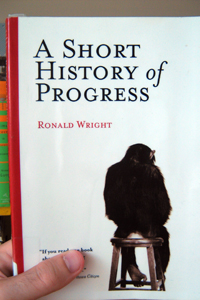
A Short History of Progress by Ronald Wright
This title caught my eye as I was scanning a the shelf at the library that often holds the books I’m looking for (303, fyi). I’d never heard of it, but key terms in the title captured my interest right away: short, history, and progress. Sold! This is the kind of discovery, by the way, that continues to validate the existence of the library for me. I’m almost always able to find new books in close proximity to those I came looking for. It’s a different type of “recommendation engine,” but one that works instantly and rarely disappoints.
The book is the printed form of a lecture Wright delivered in 2004 for the Massey Lectures. His main point is to question the meaning of progress, examining its cost as we’ve continued to define it to mean “material things getting better and better.” In focusing on the rise and fall of some of the “civilizations” key to human history, Stone Age humans, Mesopotamia, Maya, and the Roman empire, Wright argues that we have repeatedly set “progress traps” for ourselves—ones set by present success leaning too heavily on unsustainable practices, or in his words, “borrowing from the future to fund the present.”
Though relatively short, this book is packed with insights and peripheral points which could be books of their own. One in particular that resonated with me is made as an aside as Wright called out the arrogant incredulity with which the Spanish confronted the ingenuity of Incan engineering:
“Even today, some opt for the comforts of mystification, preferring to believe that the wonders of the ancient world were built by Atlanteans, gods, or space travelers, instead of by thousands toiling in the sun. Such thinking robs our forerunners of their due, and us of their experience. Because then one can believe whatever one likes about the past – without having to confront the bones, potsherds, and inscriptions which tell us that people all over the world, time and again, have made similar advances and mistakes.”
The intellectual achievements of ancient civilizations may remain a mystery forever, but it’s clear that even in ignorance of modern advancements—the wheel, writing, and the like—they wielded practical wisdom still unknown to us today.
So, there are five recommendations from me.
What about you? What have you read lately that you’d recommend?

